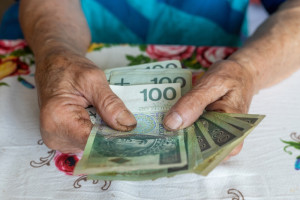Poles generally hide this. It affects as many as 61% of people.

Author: BM • Source: Rynek Zdrowia • Published: August 2, 2025 1:23 PM
New research from Wrocław Medical University shows that loneliness in Poland may be much more common than people report. Although as many as 61% of adult Poles experience loneliness, many don't admit it for fear of being judged – especially men and those in relationships.
- 61% of respondents feel lonely, and 27% experience it in an intense form
- When asked directly, only 34% of respondents declared loneliness, and 6.5% of respondents declared regular loneliness.
- Fear of social judgment makes loneliness a problem that is denied and hidden.
New research by scientists from the Medical University of Wrocław has shed some light on the phenomenon of loneliness in Poland. It turns out that although Poles largely experience this condition, they often hide it, especially men and those in relationships, primarily out of fear of negative social judgment. A total of 3,376 people from across Poland, aged 18 or over, participated in the experimental study.
The results showed significant discrepancies in reporting loneliness depending on the survey method. When using a tool that indirectly assesses its severity (the DJGLS scale), as many as 61% of respondents admitted to feeling lonely, and 27% revealed that they experienced it in a severe form. However, when asked directly about feelings of loneliness, these numbers dropped significantly: only 34% of respondents reported feeling lonely, while 6.5% indicated that it accompanied them for most of the week. This discrepancy is not a measurement error but indicates that loneliness is one of the most repressed emotional states.
Men rarely admit to feeling lonely.Silence is driven by fear of judgment from others, who might consider a lack of friends or difficulty in socializing as their own fault. The stronger the belief that society views loneliness negatively, the more people hide it. Men are among those least likely to admit to loneliness, reflecting cultural stereotypes of strength and difficulty discussing emotions. People in relationships also suppress this feeling to avoid suggesting a relationship crisis. Interestingly, people with depressive and anxiety symptoms are more likely to openly discuss loneliness, which may be related to a greater tendency to report negative emotions.
The conclusions are alarming: the phenomenon of loneliness may be much larger than previously thought, and its underestimation leads to a situation in which the problem becomes an underestimated epidemic lived in silence. It is important to counteract this through education and openly discussing the fact that loneliness can affect anyone and should not be a cause for shame.
Copyrighted material - reprint rules are specified in the regulations .
rynekzdrowia













